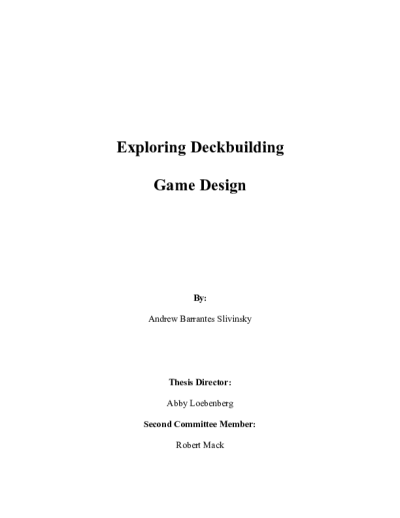Barrett, The Honors College Thesis/Creative Project Collection
Barrett, The Honors College at Arizona State University proudly showcases the work of undergraduate honors students by sharing this collection exclusively with the ASU community.
Barrett accepts high performing, academically engaged undergraduate students and works with them in collaboration with all of the other academic units at Arizona State University. All Barrett students complete a thesis or creative project which is an opportunity to explore an intellectual interest and produce an original piece of scholarly research. The thesis or creative project is supervised and defended in front of a faculty committee. Students are able to engage with professors who are nationally recognized in their fields and committed to working with honors students. Completing a Barrett thesis or creative project is an opportunity for undergraduate honors students to contribute to the ASU academic community in a meaningful way.
Filtering by
- All Subjects: Creative Project
- Creators: Loebenberg, Abby

For my Spring 2022-23 Barrett Honors College creative project, I designed and created my own analog game. The created game is a tile-management game for 2-4 players called Plash. Players collect tiles and manipulate the board to complete goals and win the game. The paper for this project details the inspirations and research done for the game’s design, the game's design journey, and detailed instructions on how to play.

Samantha and Rachel both have a history in gifted education and wanted to create a safe space for the two of them and their peers to discuss the effects gifted/ accelerated education has had on them, specifically pertaining to burnout. To best dive into this matter, Gifted Kid Syndrome podcast was born! During which, our hosts interviewed students and professionals, allowing everyone to share their pasts, their hopes for the future, and what they’ve learned along the way regarding mental health, identity, education, and personal success.
Samantha and Rachel both have a history in gifted education and wanted to create a safe space for the two of them and their peers to discuss the effects gifted/ accelerated education has had on them, specifically pertaining to burnout. To best dive into this matter, Gifted Kid Syndrome podcast was born! During which, our hosts interviewed students and professionals, allowing everyone to share their pasts, their hopes for the future, and what they’ve learned along the way regarding mental health, identity, education, and personal success.
